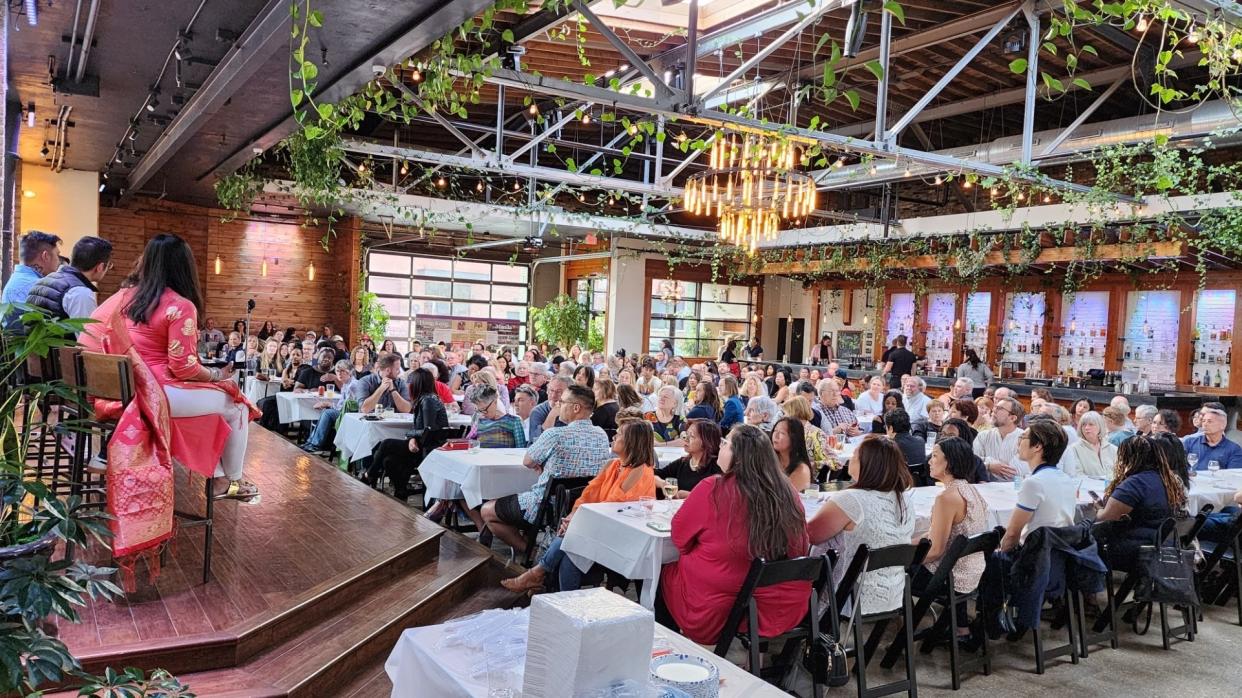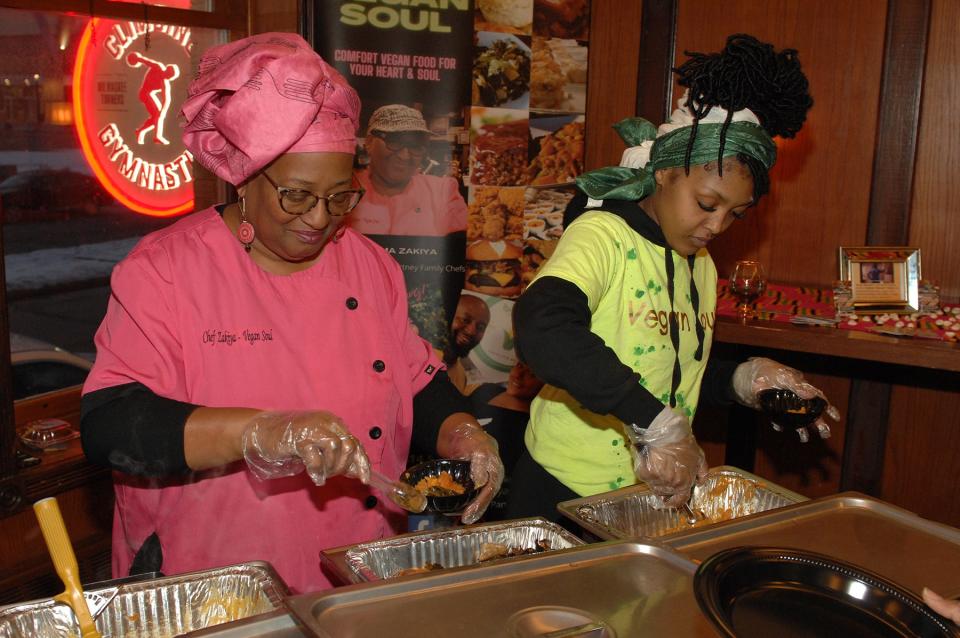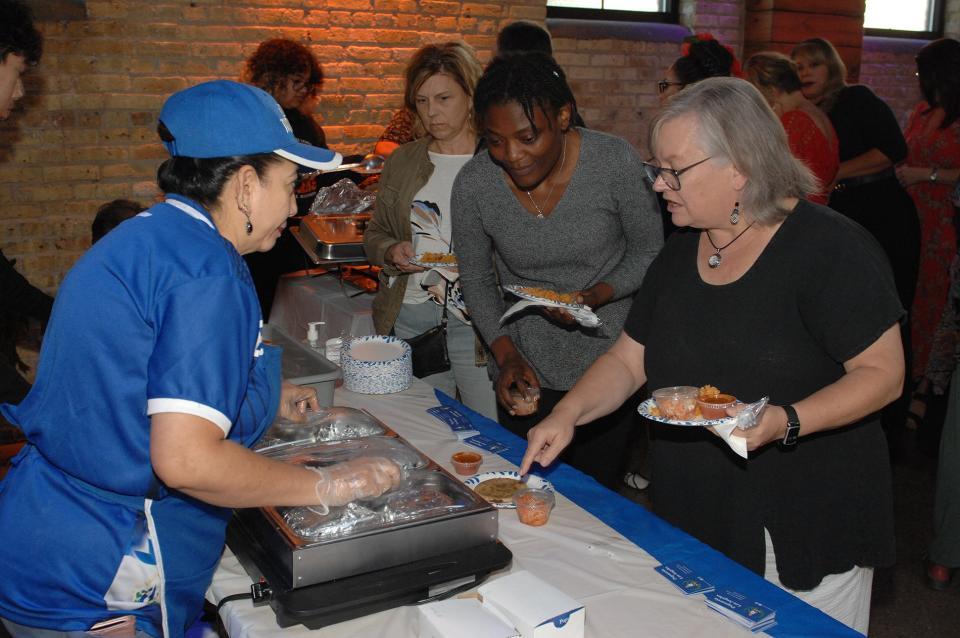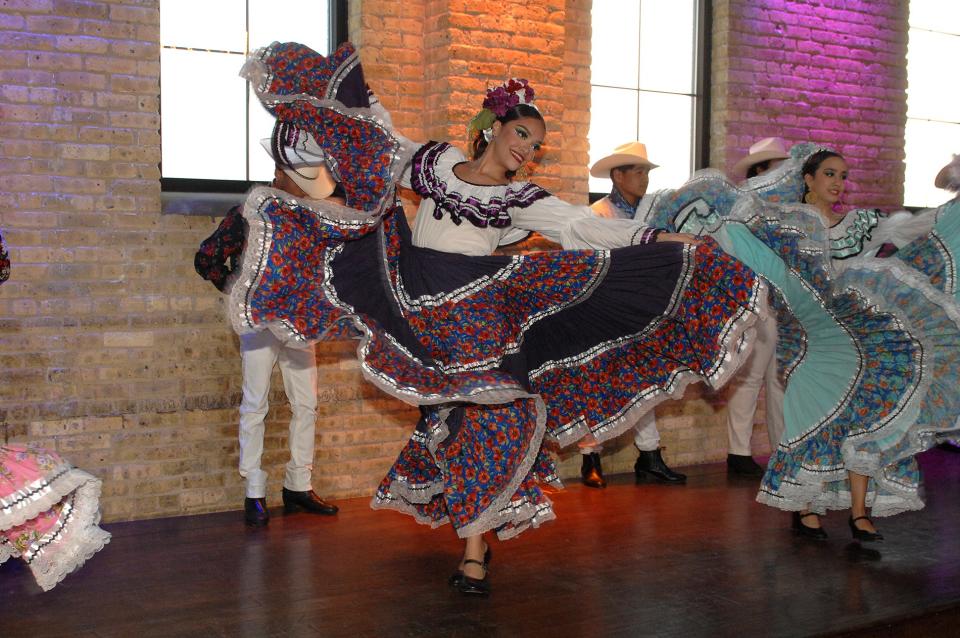Lubar Center's Heritage Dinners aim to bring people together over food from different cultures

What happens when 250 strangers sit down to taste food from another culture?
At a series of Heritage Dinners presented by the Lubar Center at Marquette's Law School, a diverse mix of people break out of their social bubbles to enjoy an evening of food, fun and friendship.
Native American cuisines and a celebration of indigenous culture are on the menu for the next dinner at 5 p.m. Nov. 12 at the Ivy House, 906 S. Barclay St. This will be the fourth dinner in a series celebrating diverse cultures through food, art, music and more. Past dinners highlighted the Black community, the Asian American Pacific Islander community, and the Latino community.
Who came up with this intriguing concept? Derek Mosley, of course. Mosley, a former judge, is the current director of Marquette University Law School’s Lubar Center for Public Policy Research and Civic Education and one of the Milwaukee food scene’s most passionate cheerleaders. In creating the dinner series, Mosley’s goal was to build bridges in our very fractured world. He recognizes the powerful role food can play in doing that.
“We're more divided than I can remember in my lifetime. ... Part of that division is that we don't know much about each other,” Mosley said. “This is a blending of my two favorite things: food and bringing people together. I wanted to do something that brings people together, have them learn about a different culture, try the food, learn why it's important to that culture, and meet people who are different from them."
The tagline for the series is “Meet someone, learn something, eat everything,” and the dinners have delivered on that promise.

Breaking bread to build bridges
Shary Tran, a diversity practitioner and co-founder of ElevAsian, which aims to highlight AAPI businesses, events and issues in Milwaukee, helped Mosley plan the AAPI dinner last May.
“We had Lao food, Indian food and Filipino food; so it was demonstrating that it's not just Chinese food that you think of when you think of Asian food,” Tran said. “This isn’t about just serving a plate, it’s telling a story, too. ... We should all be interested in the stories and the people behind the food we eat. Breaking bread is the best way to build bridges."
The events are structured to encourage interaction with fellow diners.

“You're at communal tables, meeting new people and experiencing some foods for the first time. This can start new conversations and maybe create some new friendships, too,” Tran said.
Mosley recruits chefs to prepare traditional recipes and share their stories. Local foodies like Sam McGovern-Rowen, who attended the Latino Heritage Dinner in September, have been impressed.
“My wife and I consider ourselves pretty sophisticated with our palates, and we seek out ethnic restaurants in the city to support local businesses,” he said. “I was very excited to go to the Latino Heritage dinner because I've been eating food like this my whole life. ... I wasn't expecting any surprises, but there was a mole poblano dish from Guadalajara restaurant, and it was so good. ... We heard the story of that dish from the owner of the restaurant. Guadalajara has been in Milwaukee for decades and within a week, we were at the restaurant to get the full dish."
Heritage dinners are structured to promote interaction.
“We’ll sit you at a table with people you don't know and give you half an hour for everybody to talk, get to know each other, grab a drink and sit down. And then we start the program and introduce people to different cultures,” Mosley said.
The dinners have been overwhelmingly successful largely due to Mosley’s partnerships with community nonprofits. All of the dinners have sold out and had waiting lists, according to Mosley.

Ancestral foods at Native American Heritage Dinner
The upcoming dinner will introduce guests to foods from several Indigenous Nations.
“My goal is that all different types of nations are represented. They're all separate nations with their own culinary habits and traditions, and I want that to be a part of the whole experience,” Mosley said.
To achieve that goal, Mosley reached out to Elena Terry, executive chef and co-founder of Wild Bearies.
“Wild Bearies is a nonprofit which tries to introduce people to ancestral foods and dishes of the Indigenous First Nation tribes here in Wisconsin and throughout the Midwest,” Mosley said. “The chefs will prepare the meals and the guests will sample those meals, and then they’ll get a narrative history of what they're eating and why it's important to the culture.
“The point of these dinners is to try the true dishes. Elena Terry is a huge proponent of non-colonized foods like the heirloom corns and the wild rice that are native to Wisconsin, that we've kind of gotten away from,” Mosley said.
Terry looks forward to sharing Indigenous food and culture in a welcoming atmosphere.
“It might be a little intimidating to go to a powwow or to enter an honoring or something like that. But if you can have a food tasting with conversation, it takes down a little bit of the intimidation of entering a space that's not culturally yours,” Terry said.
The menu will feature a variety of foods that are staples of First Nation cooking such as wild rice, bison, corn and squash.
“I'm grateful for the opportunity to create memories and community and to be able to contribute my skillset to an evening like that. What better way to participate than to really nourish the people coming? And that's what I hope happens,” Terry said.
That nourishment will go beyond food. Mosley has invited the Oneida Singers and students from Indian Community School in Franklin to offer a glimpse into Indigenous culture.
Exposing people to different tribal foods and traditions can open dialogues and form connections.
“There are so many conversations that can stem from a meal like this: climate, sustainable agriculture, environmental concerns, community and prejudice,” Terry said. “Universally we're sharing some bites, and hopefully that can ignite conversations, because ultimately these kinds of events are truly about honoring a culture while building a stronger community."
More information: The Native American Heritage Dinner will be held at 5 p.m. Nov. 12 at the Ivy House, 906 S. Barclay St. The cost is $30 per person. Find more information and register for this and future dinners at law.marquette.edu/lubar-center.
This article originally appeared on Milwaukee Journal Sentinel: Lubar Center's Heritage Dinners highlight food from different cultures

